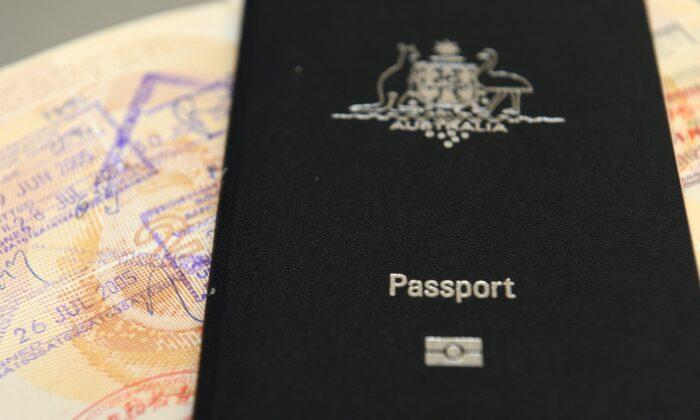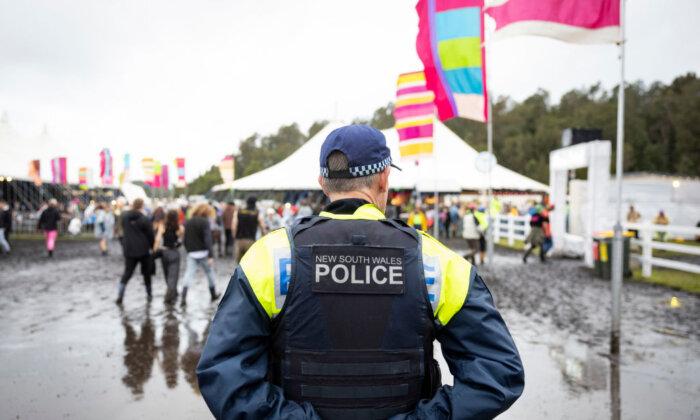A report has revealed significant delays in passport processing due to poor planning post-COVID-19, sparking outrage among coalition leaders who say Australians are overpaying for a failing system.
The Australian National Audit Office (ANAO) 2023–24 report (pdf) on the Australian Passport Office found more passport applicants are choosing to pay for priority processing after the border reopened, although the Department of Foreign Affairs and Trade (DFAT) didn’t meet its target of processing 95 percent of regular passports within ten business days.
The report said DFAT’s efficiency dropped due to increased costs per passport and reduced productivity per staff member, exacerbated by delays in hiring and training staff after the international border reopened.
“There are no resource efficiency targets; the average cost to produce a passport has increased more than the increase in the price of labour; and staff efficiency, which was improving up until the COVID-19 pandemic, has deteriorated since the international border was reopened,” the report noted.
“While the department has timeframe targets for processing applications, those targets are not customer-focused and are not being consistently met.”
Senator Simon Birmingham has since accused the Albanese Labor Government of providing poor services under its watch while raising passport fees for Australians, noting the cost of an adult passport has increased by $38 and plans for another increase of $52 from July 1.
“In a desperate cash grab, the Albanese Government has twice hiked the price of passports with a third to come, yet this report reveals Australians are forking out more just to wait longer for their passports,” he said.
He pointed out that Australians already pay more for holidays due to limited airline competition after the government excluded Qantas, Virgin, and the aviation sector from its competition policy review.
“Now they’re paying more just to be allowed to leave the country,” he said.
He urged the government to reverse their significant passport price increase until they thoroughly address the recommendations from the report.
“So that Australians get a fair deal on passports, not a costly, stressful stuff-around,” he said.
The report recommends that DFAT measure how long it takes for applicants to get their passports, from when they apply until they receive or collect them.
DFAT has since agreed to all nine recommendations.
Australia Post noted that the report mentioned them but didn’t provide any recommendations.
DFAT Admits Struggle with Outdated Technologies and Digital Needs
DFAT acting secretary Craig Maclachlan told the ANAO that it grappled with outdated technologies and called for more digital capabilities.“The department has acknowledged that its preparations for the unprecedented post-COVID demand surge were insufficient to maintain continuity of service,” he said.
“We regret any and all impact and inconvenience caused to the community and individuals during this time.”
Meanwhile, Assistant Foreign Minister Tim Watts criticised the previous Coalition government for mishandling the Australian Passport Office.
“The former Coalition government was warned as early as December 2020 to prepare for a ‘pent-up demand surge’, and had ample time to prepare, directly causing the backlog and delays experienced by Australians,” he said.
He stated that because of their lack of planning, Australians had to wait an average of 50 days to receive a passport during the peak backlog.
Nevertheless, Australia Post argues passport processing times have returned to pre-COVID-19 levels.
“The good news is passport processing times are back to what they were before COVID-19, despite the high ongoing demand,” the national postal service said in a statement.
However, it noted that processing times may vary, especially during busy travel.
“That’s why you should plan well ahead and allow at least six weeks to apply for or renew your passport if you’re looking to travel this year.”







